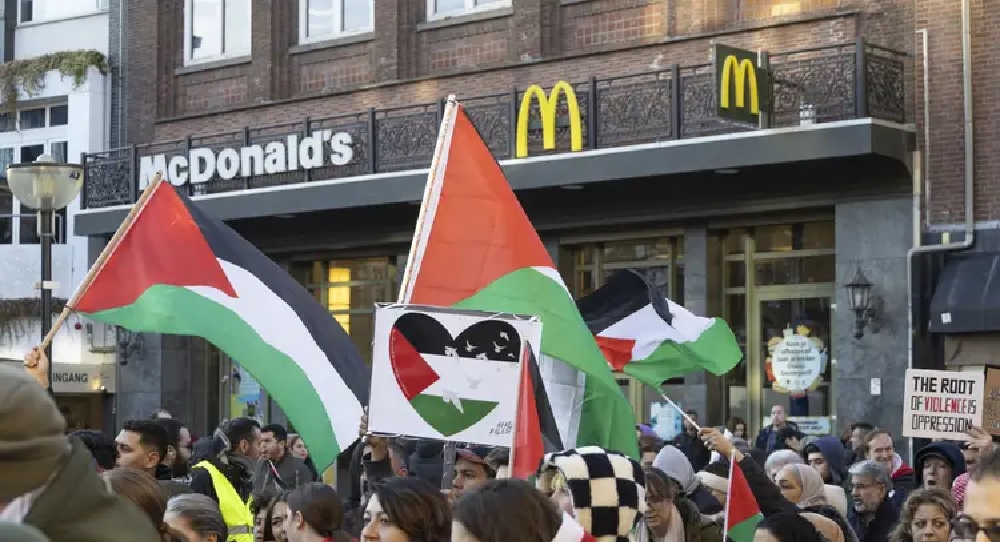McDonald’s CEO Blames Global Muslim Boycott for Declining Sales
Chris Kempczinski, CEO of McDonald’s, has pointed to a global boycott led by Palestinian supporters, particularly from Muslim communities, as the primary cause for the fast food chain’s recent decline in quarterly sales.
McDonald’s reported its first global sales decline since 2020, attributing this downturn to the boycott Israel campaign, which has gained momentum due to the ongoing siege of Gaza by Israel since October of last year. During a recent earnings call, Kempczinski acknowledged the significant impact of the boycott, noting that consumer sentiment in key markets, especially those with strong support for Palestine, had been adversely affected.
READ MORE: Government Projects Inflation at 12-13% for July
The company posted quarterly revenues of $6.49 billion, nearly unchanged from the previous year, but net profit fell by 12% to $2.02 billion, missing Wall Street expectations. International sales saw a decline of over 1%, a notable drop for a company with over 40,000 restaurants in more than 100 countries.
Kempczinski also noted that consumers had become “more discriminating with their spend,” a trend likely influenced by the boycott campaign.
The boycott against McDonald’s and other American companies began in October 2023, following an announcement by McDonald’s in the Israeli-occupied Palestinian territories that it had donated thousands of free meals to Israeli soldiers. This move sparked widespread backlash, particularly in Muslim-majority countries and among supporters of the Palestinian cause.
This campaign is part of the broader Boycott, Divestment, and Sanctions (BDS) movement, which has also targeted other American brands such as Starbucks, Burger King, KFC, Pizza Hut, and Papa John’s. Additionally, companies like Coca-Cola, Pepsi, Wix, Puma, and Zara, known for their financial ties to Israel, have faced similar boycott calls.
The BDS movement, which seeks to pressure Israel to comply with international law and respect Palestinian rights, has gained significant traction globally. Thousands of volunteers advocate for economic, cultural, and academic boycotts of Israel. Pro-Israel groups view BDS as an “existential threat” due to its potential economic impact.
The humanitarian crisis in Gaza remains dire, with reports indicating that the ongoing conflict has resulted in the deaths of 39,363 Palestinians and at least 90,923 injured. The international community continues to call for a resolution to the crisis, emphasizing the urgent need for humanitarian aid and peace negotiations.




